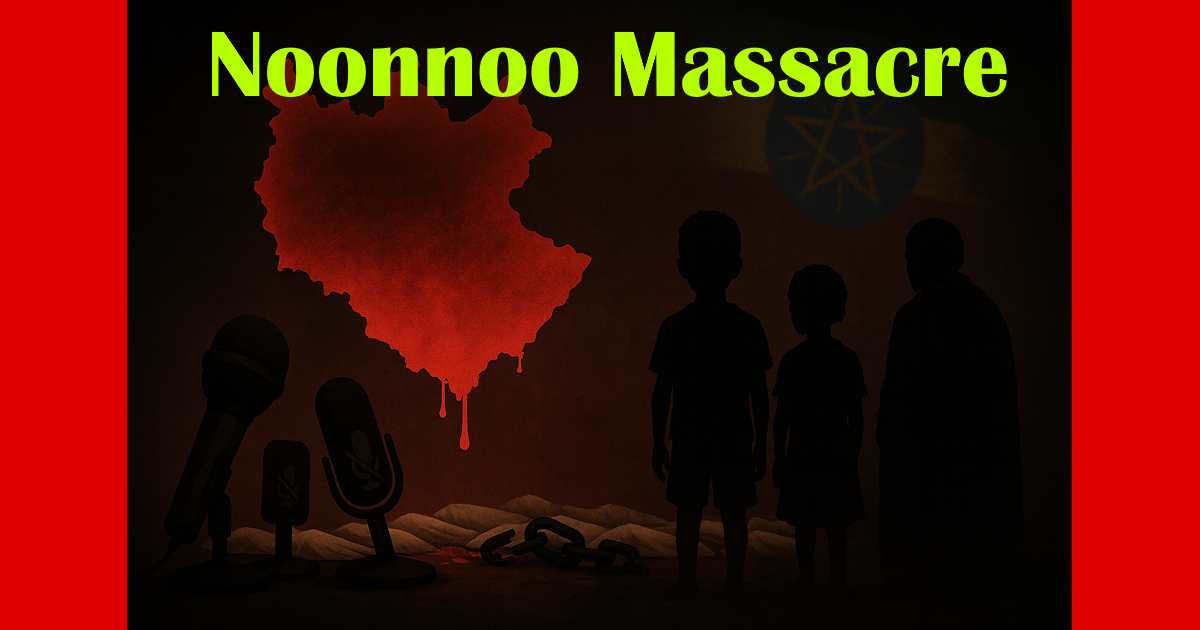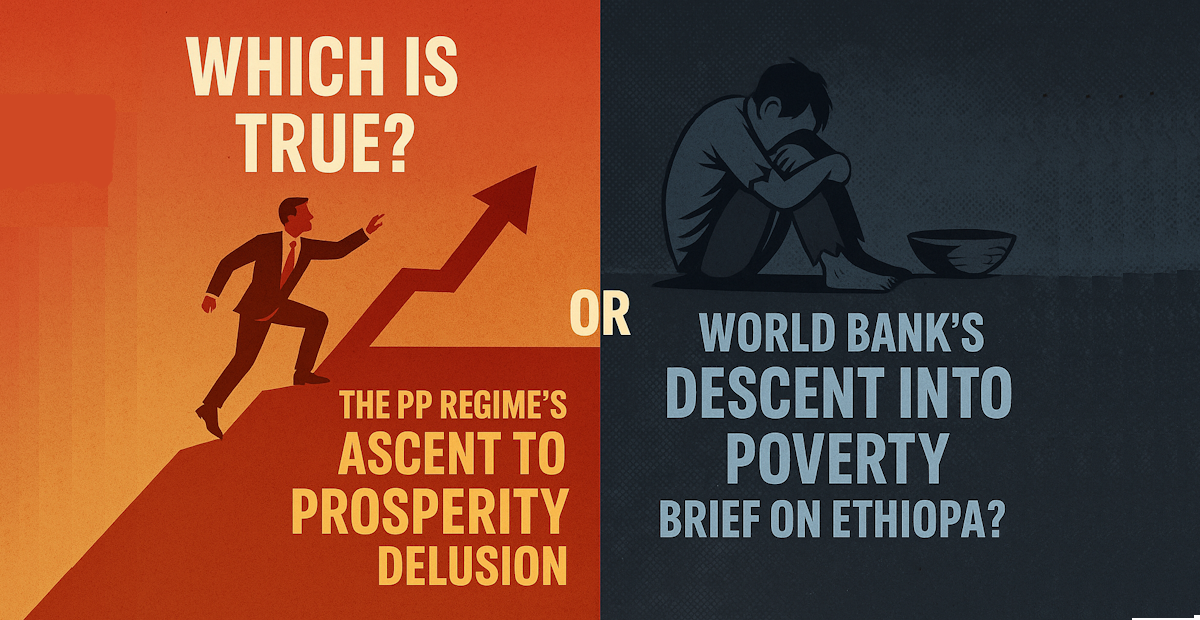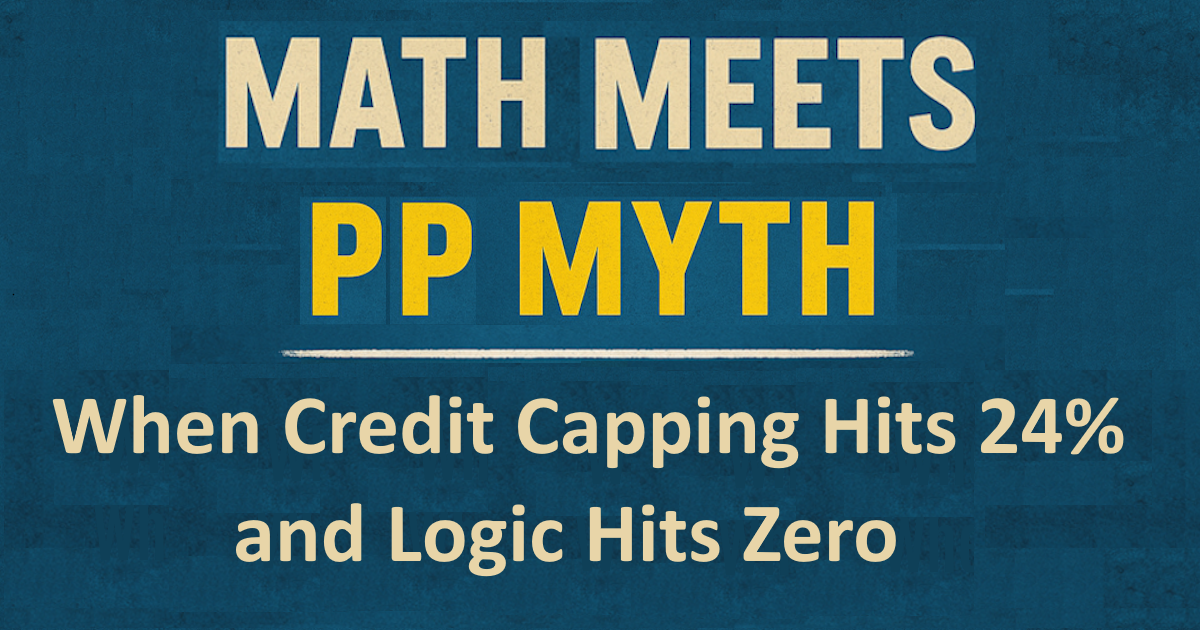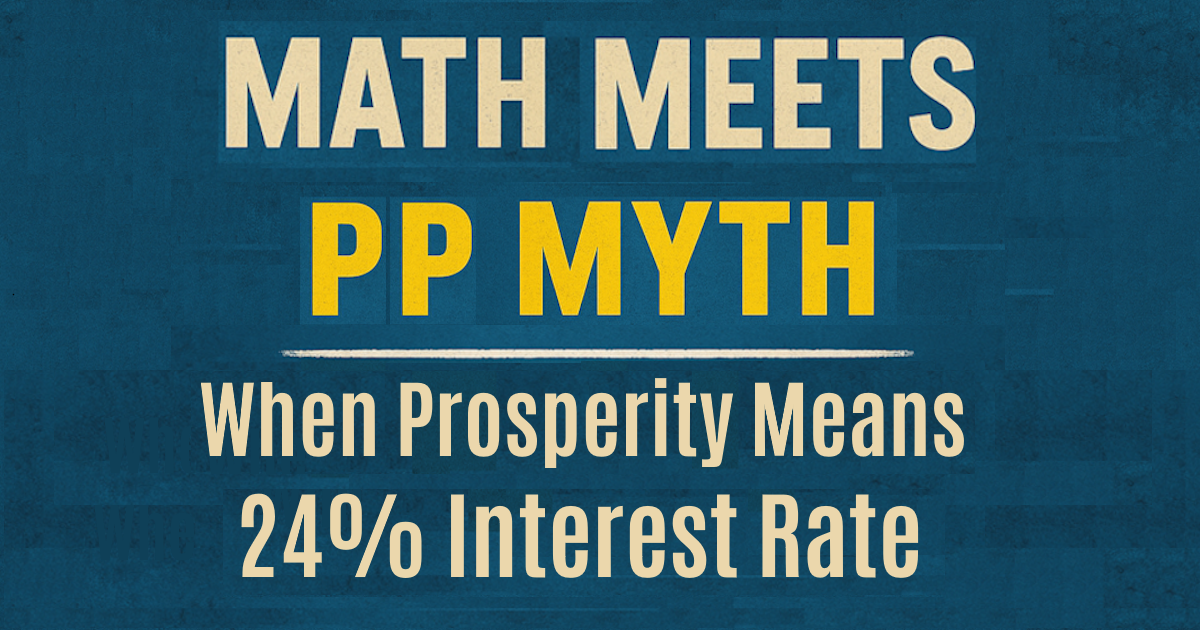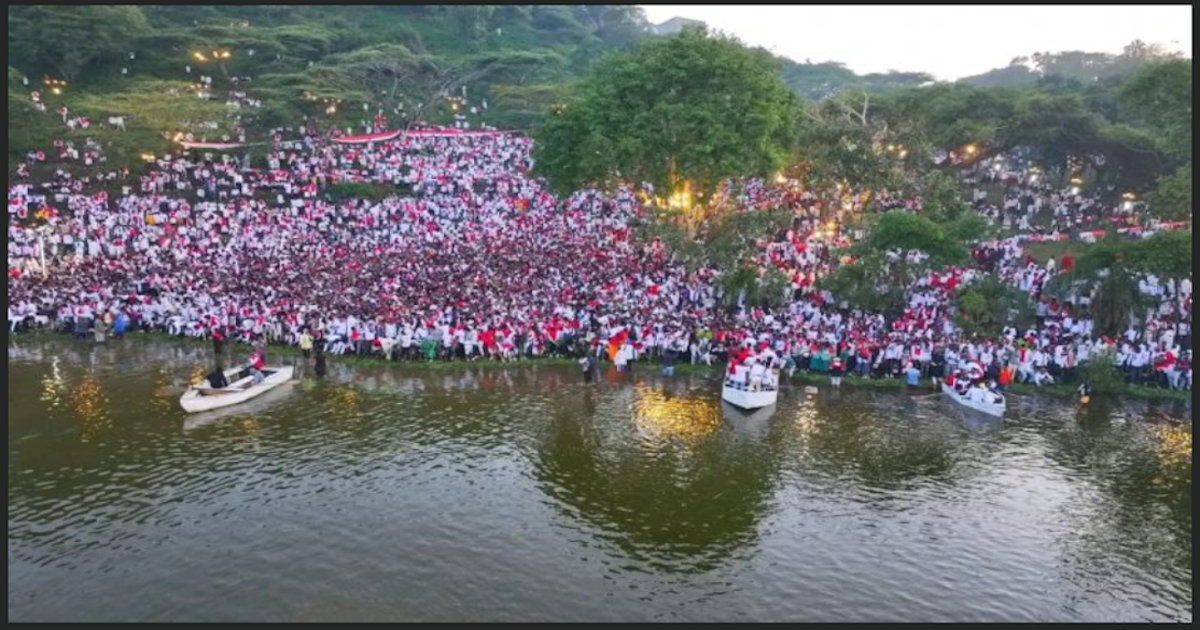A Coward's Policy in Oromia: The Maize Ban That Threatens Food Security
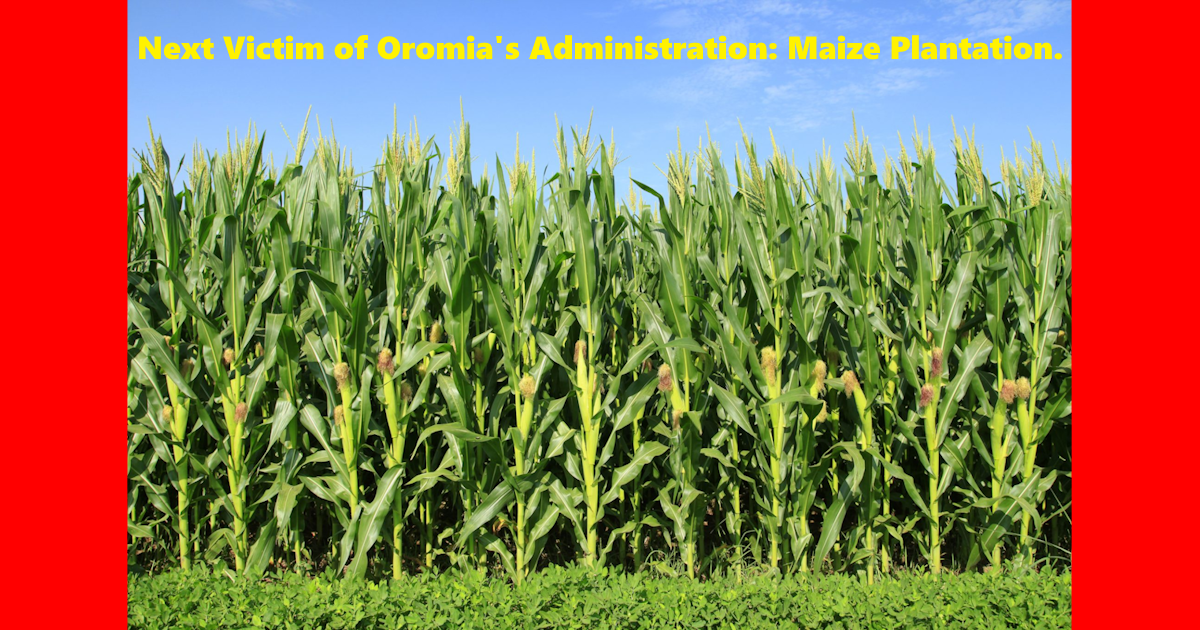
Excerpt
When maize becomes a threat and feeding your people a crime, governance has failed not only in courage—but in conscience. The senseless maize ban just imposed across Oromia’s Rift Valley belt is yet another tragic episode of hapless leadership—one that shuns dialogue in favor of desperate, random firefighting, even if it means starving its own population in the months ahead.
Oromia’s Maize Ban: A Security Policy Rooted in Cowardice
The “Oromia government” has issued a chilling directive: farmers in the Rift Valley belt are told not to plant maize—their staple crop and ecological anchor. Not because of blight. Not due to climate change. But because insurgents from the Oromo Liberation Army (OLA) might hide in the maize fields.
To fear a stalk of maize more than facing the causes of rebellion is not governance—it is surrender. This is not counterinsurgency. It is cowardice in policymaking, punishing the innocent for problems rooted in failed leadership.
Ecological Vandalism Disguised as Strategy
Maize in the Rift Valley isn’t just a crop. It’s the result of thousands of years of natural alignment—soil chemistry, rainfall, altitude, and community tradition all support it. Ordering farmers to abandon it is like commanding a forest not to grow.
This is ecological sabotage. An arrogant interference with the balance nature perfected long before modern borders and ministries existed.
Starvation as a Side Effect? No—It’s the Main Effect
Without maize:
- Families go hungry—no porridge, no grain.
- Chicken farms collapse—maize is the main feed.
- Dairy suffers—no stalks for cattle fodder.
- Local markets wither—no surplus to sell.
This isn’t unintended. It’s a systemic unraveling of food security. A slow-motion economic and humanitarian collapse triggered by a policy no sane agricultural planner would endorse.
Southern and Western Oromia’s Foreshadowing
Around three years ago, in the Gujii zone of southern Oromia, security forces resorted to destroying entire fields of green maize stalks—crops still growing—out of fear that OLA fighters might be using them for cover. The action not only decimated a vital food source but also traumatized farming communities, leaving behind scorched hopes and devastated livelihoods.
In western Oromia, a similar maize ban was introduced (see report by the European Institute of Peace, cited in reference [1]). Although enforcement was sporadic, the consequences were deeply felt: acute maize shortages, the collapse of poultry farms, soaring food prices, and worsening poverty.
While parts of southern and western Oromia had some fallback of alternate grains or crops like coffee, that in no way justifies the reckless and destructive bans imposed there—nor does it excuse repeating the same disastrous mistake in the Rift Valley belt. This newly targeted region depends almost entirely on maize as its primary staple. That makes the current ban not only more dangerous—but unforgivably irresponsible.
Governance by Fear and Folly
A state that fears crops more than facing the roots of a liberation struggle has not only lost its moral compass—it has lost all legitimacy. By criminalizing maize, the “government” criminalizes survival. It does not protect land—it punishes life on it. Instead of addressing grievances of root causes and building legitimacy, it chooses control through deprivation.
If rebels hide in fields, ask what drives rebellion. Crops don’t cause uprisings. Injustice, starvation, and authoritarian fear do.
This Is a Line Crossed
This is not agriculture policy. This is war by hunger. A betrayal of the people’s trust. A violation of nature’s logic. And a dangerous precedent that could turn a breadbasket into a famine zone. Oromia needs leadership rooted in courage, not fear of plants.
When governments declare war on their own soil and seed, they declare war on their future.
In Conclusion
There is a simple, sane solution before both the Oromia regional government and the federal authorities in Finfinnee: pursue peace through negotiation, not through reckless, knee-jerk policies that devastate livelihoods and deepen public resentment.
Your every move reeks of desperation to cling to power—regardless of the cost. Look back at the past six years: scorched villages with civilians still in their homes; thousands of indiscriminate and systematic massacres; the cold-blooded execution of 14 revered Karrayyuu Abbaa Gadaas; deadly drone strikes on unsuspecting residential areas and marketplaces; the countless imprisoned or forced to flee to neighboring countries; and a ruinous civil war now crippling the empire’s economy. The ledger of your atrocities is vast—measured not just in years, but in lives shattered, communities erased, livelihoods destroyed, and now a nation driven toward famine by your own design—all in the name of clinging to power.
Now, you wage war on nature itself by banning maize—the lifeline crop of millions.
Let this sink in: the OLA fighters are not the enemies of the Oromo people. They are their daughters and sons. Many of them paid with their lives—over 5,000 strong—to topple tyranny and open the door for the very political power you now occupy. Think about that.
Stop the absurdity. The solution is not starvation. It’s not repression. It’s dialogue, dignity, and accountability. Peace is not hard—unless you make it so.
Maize ban in southern and western Oromia yesterday. Maize ban the Rift Valley belt today. Will it be the ban of sorghum fields of eastern Oromia tomorrow? Time will tell—but the preference for chaotic repression over principled peacemaking is already plain.
Relevant References
- “The Potential for Peace in Western Oromia”, Report Circulated in November 2022, European Institute of Peace (see endnote below).
- Kumaa Daadhii, Ten Things the PP Government Has Done—and You Might Not Even Know, 25 January 2025, OROMIA TODAY.
- Elemoo Qilxuu, ETHIOPIA WILL NEVER BE AT PEACE WITHOUT RESOLVING THE OROMO QUESTIONS, 2 December 2024, OROMIA TODAY.
- Editorial, Oromia’s Endemic Corruption is Set to Impoverish the Already Poor Farmers. 20 January 2023, OROMIA TODAY.
Endnote
The report titled “The Potential for Peace in Western Oromia” by the European Institute of Peace was challenged by OLF-OLA over issues of accuracy, prompting an apology. However, its citation of a maize ban imposed in western Oromia in 2022 was factually correct.


